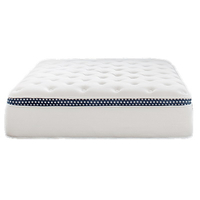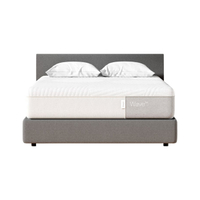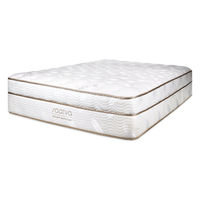Yes some mattresses can cause back aches and pains — here’s why
Is your current mattress bad for your back? We look at the telltale signs to help you figure it out
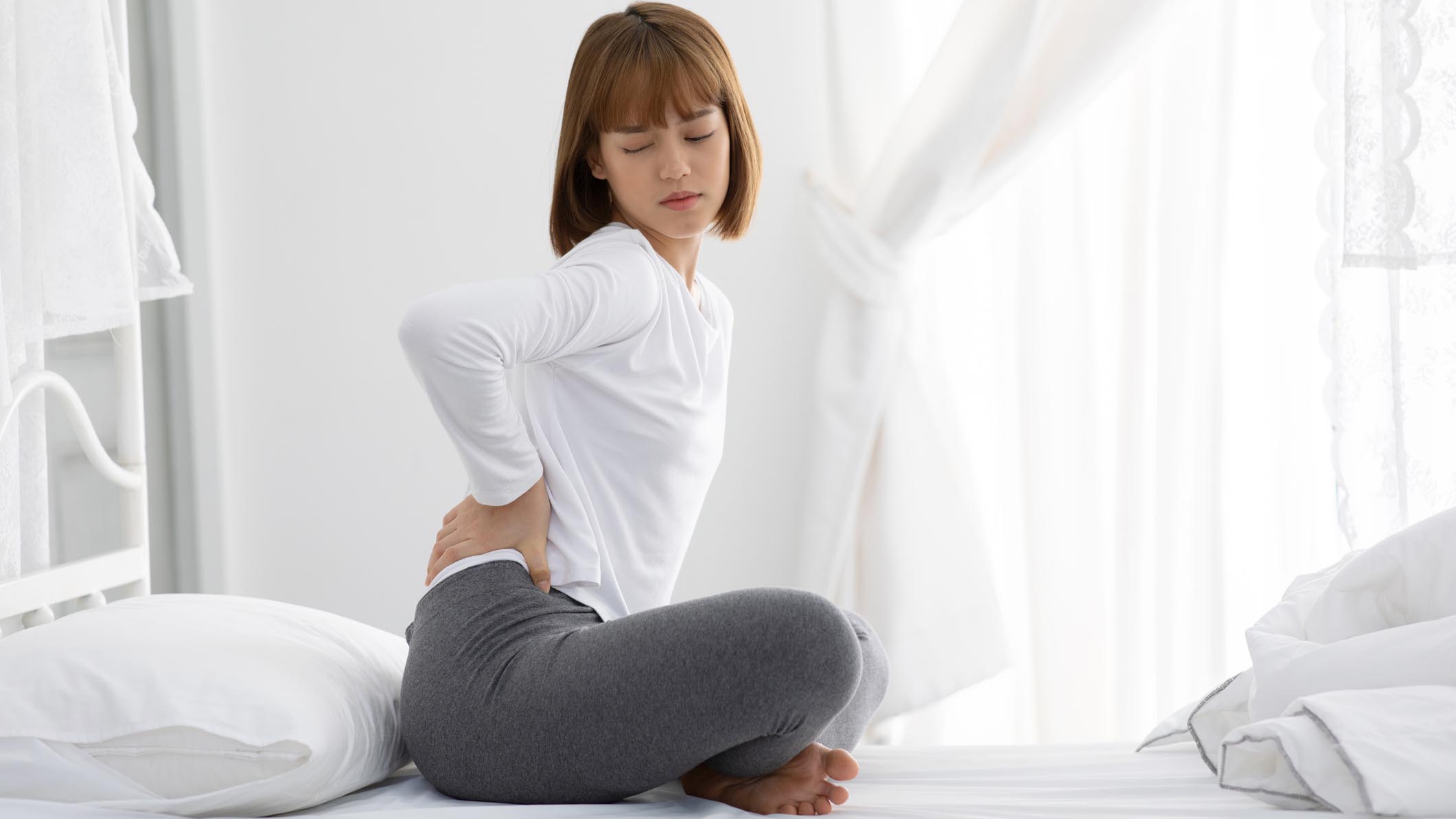
If you’re waking up achy in the mornings, you might want to know whether a mattress can cause back pain. Well, there are many reasons why mattresses can lead to backache, including if your bed is old and well past its natural lifespan, if its sagging or offers the wrong firmness for your sleep style and body weight.
If this sounds like something you are familiar with, then it could be time to invest in the best mattress for your body and sleep style, and one that better supports your spine health. Luckily, there are plenty of affordable options in this year’s Presidents’ Day mattress sales, including some with features specifically designed for better sleep posture.
For now, let’s look at the main reasons why your mattress might be causing you back pain and what you can do about it, including how to choose a new bed with better spinal support to protect your posture.
Can a mattress cause back pain?
According to experts at Spine Health, “Sleeping on the wrong mattress can cause or worsen lower back pain. Lack of support from a mattress reinforces poor sleeping posture, strains muscles and does not help keep the spine in alignment, all of which contribute to low back pain.”
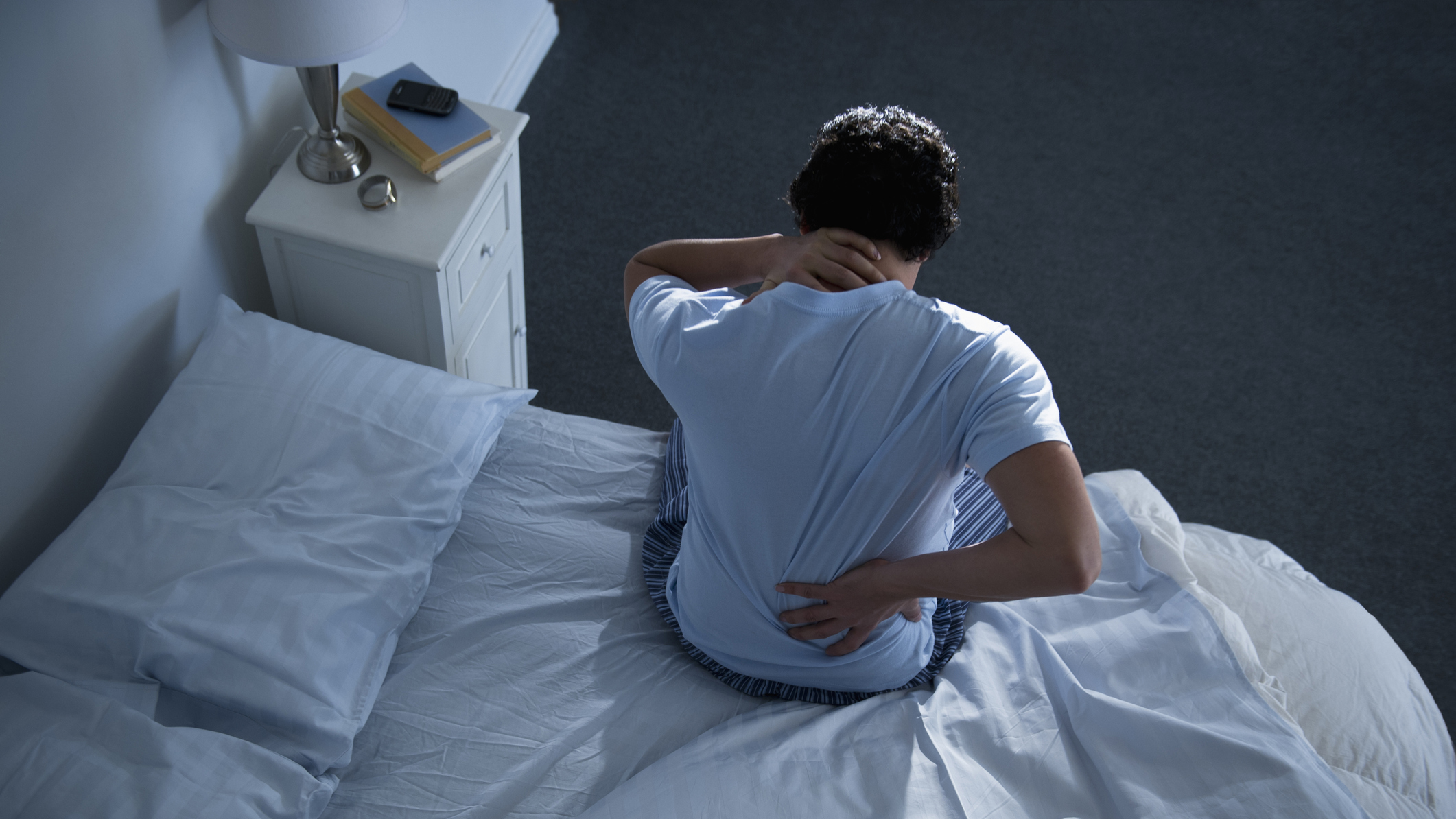
The good news is that this can be remedied – but at the same time it’s also important to recognize whether your bed is the actual source of the problem, or whether something else is causing it.
In all cases, if you are experiencing ongoing back pain then you should speak to your doctor or healthcare professional and get their expert advice. There are many different causes of back pain, so it pays to be extra careful when identifying the potential root cause.
Let’s now look at whether a mattress can cause back pain, and what you can do about it if you suspect yours is troubling you…
Sign up to get the BEST of Tom's Guide direct to your inbox.
Get instant access to breaking news, the hottest reviews, great deals and helpful tips.
1. Your back pain is much worse in the mornings
If you wake up and your back is sore and aching, but you don’t experience that soreness or pain at any other time, then chances are your mattress is causing it. And if the discomfort gradually improves throughout the day, then that’s another key sign that your bed could be the main culprit.
According to Dr. Frank Siraguso at the Siraguso Family Chiropractic clinic, if your muscles are working too hard to keep your spine aligned, “then they do not have time to rest, your joints are under constant stress, and your discs are not able to decompress and rehydrate, leaving you with pain when you wake up.”
Another sign that your mattress is to blame is if stretching for 15 minutes to half an hour after you wake alleviates the pain. Constantly shifting your sleep position in order to get comfy is also an indicator that your mattress is causing your back and hips to ache.
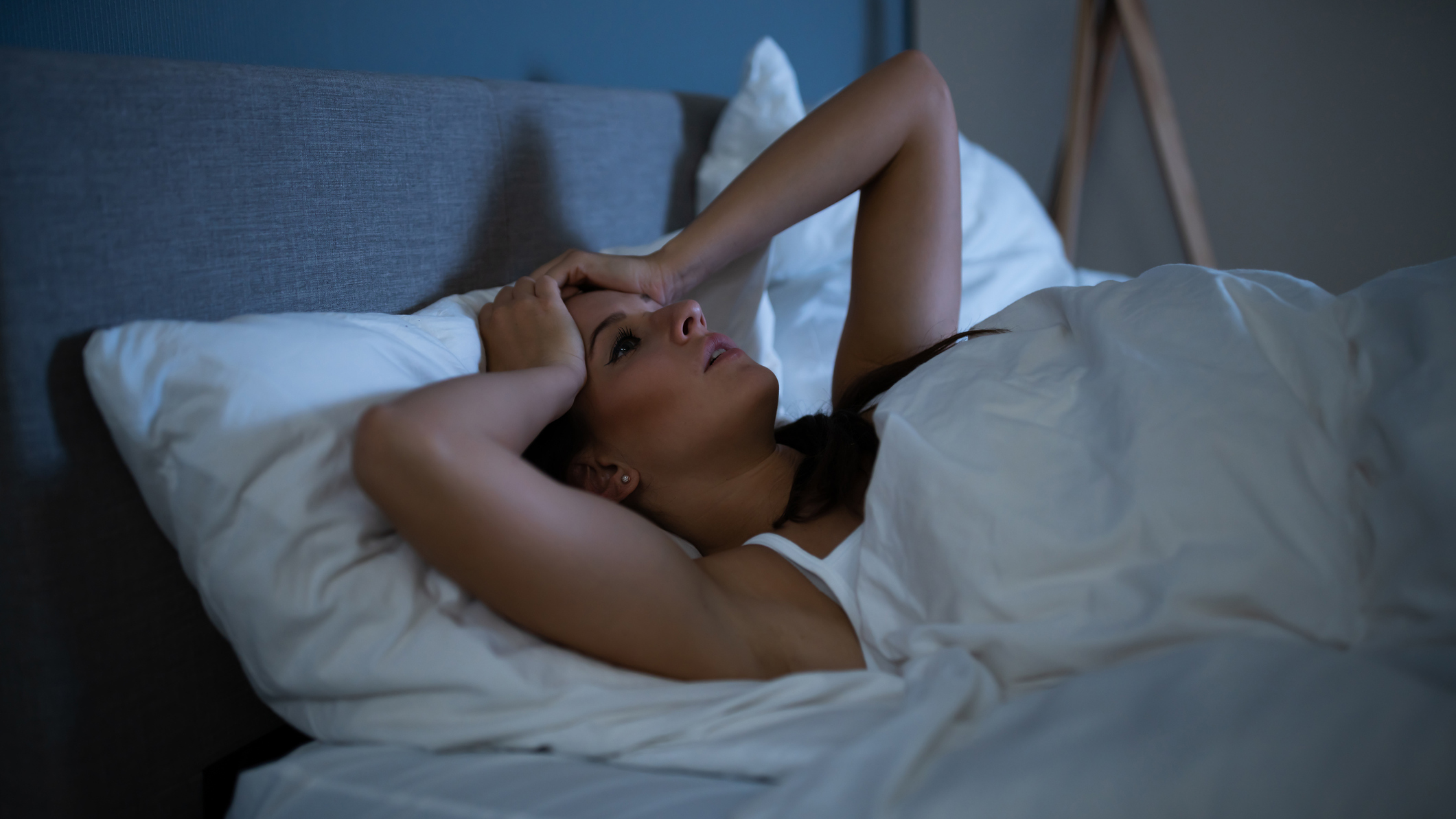
2. Your mattress is too firm or too soft
While a cozy mattress might seem inviting at the end of a hard day, if it’s too soft then it can throw your spine out of alignment. The exact same thing can also happen if the mattress is too hard for your body weight and frame.
The key? To find a neutral sleeping position that is comfortable for your spine. In order to properly support your body, the ideal mattress should be medium-firm. If a mattress is too firm, it will push the shoulders and hips out of alignment causing the back to ache. Harvard Health reported that, “one survey of 268 people with low back pain found that those who slept on very hard mattresses had the poorest sleep quality.”
If your mattress is too soft then it will drop the spine into the mattress without any proper support, leading to bad alignment and body ache. Harvard Health also states: “You might sink in so deeply that your joints twist and become painful during the night.”
3. Your mattress is sagging
After years of daily use, even the very best mattresses will be subject to wear and tear, no matter whether it’s a good memory foam mattress, an innerspring, or a luxury hybrid option. However, once a mattress starts to sag, then it will soon be past the point of no return and no longer able to give your spine the proper support it needs for healthy sleep.
If you gradually start to feel your body dipping into your mattress as you sleep, this usually means the materials inside the bed have softened or lost their tension over the years. While you can make temporary adjustments with a pillow beneath your knees or hips, or use a high quality mattress topper to keep the surface level, these are no substitute for buying a new mattress.
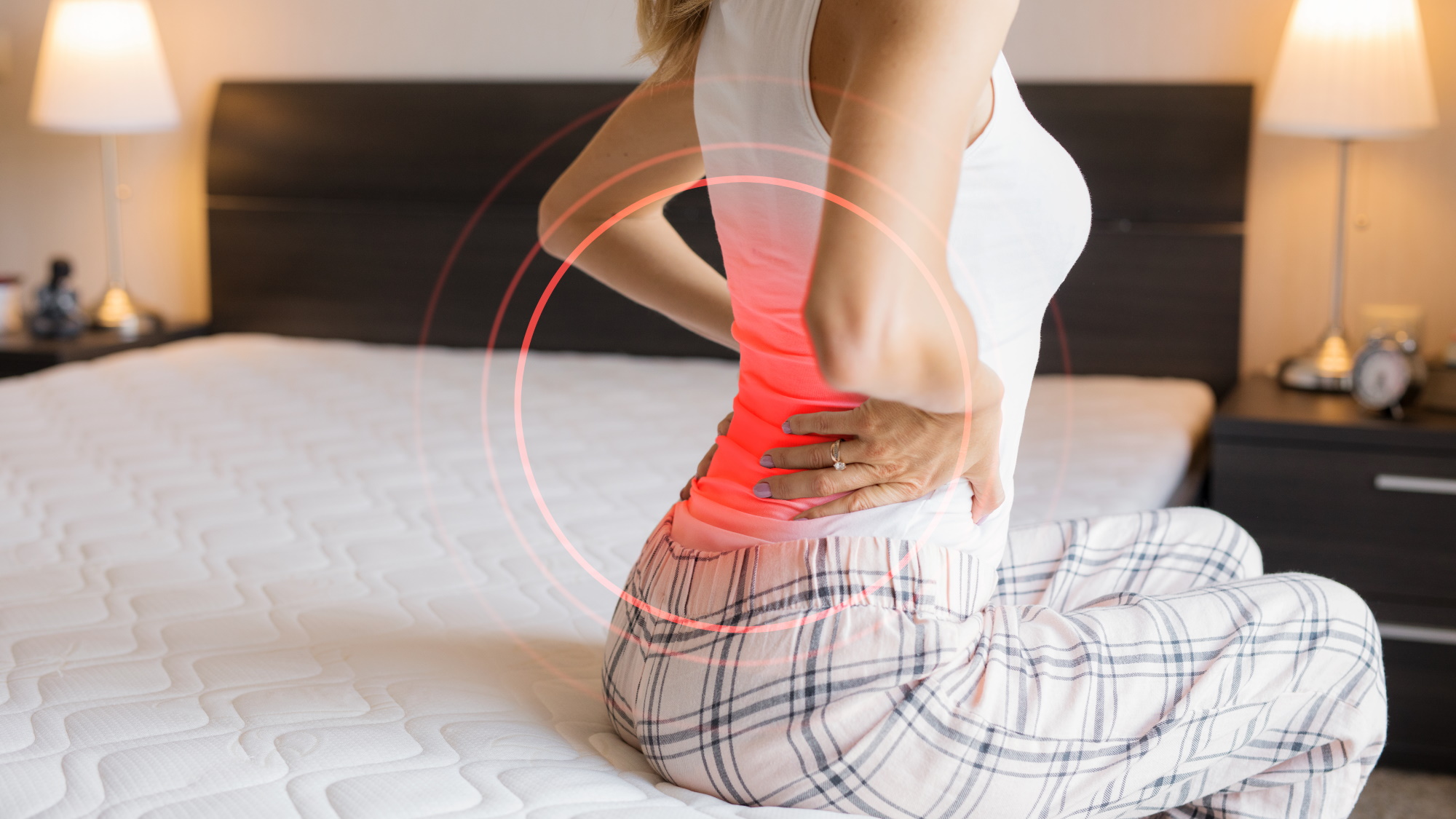
The good news is many sleep brands offer lengthy warranties of up to 25 years as an assurance of quality. This is especially true with organic mattresses, which use naturally hard-wearing materials such as latex.
It’s also advisable to flip or rotate your mattress following the manufacturer’s instructions – not only will this keep your bed in better condition for longer and provide a more stable surface to sleep on, but it will also help keep it within the conditions of the warranty.
If you notice you sleep better on any other mattress, such as those in hotels – and that those mattresses have a firmer, more even surface – then this is another sure sign it’s time for an upgrade.
How to choose a mattress with good back support
If it’s time to say goodbye to your old mattress and welcome in a new one that has better back support, then there are certain things you should look out for before you buy.
First, make sure you can try the bed – whether that’s in-store or, better still, with a lengthy, risk-free at-home trial as found with the best mattress in a box brands. Unsure what firmness to go for? Then choose one with a medium-firm feel. Also look out for features such as lumbar support or zoned support. This means the firmness is varied across the mattress, becoming more supportive in the middle and cozier along pressure points such as the shoulders.
According to chiropractor Dr. Brent Wells, when speaking about traditional innerspring beds, said: “Springs that are stiff can cause the body to lie unevenly on the surface, leaving your lower back with little or no support." For low back pain, he recommends memory foam or latex foam.
Remember that if you're in the US and buying a mattress specifically to help with a medical condition, you may be eligible for Medicare support; see our guide to what types of mattresses are covered by Medicare for more details.
Three mattresses for better back support
WinkBeds Mattress: from $1,149 $849 at WinkBeds
Save up to $300 - The WinkBed comes in four different firmness levels, but chiropractors recommend a medium-firm feel the most. The closest the WinkBed offers is luxury firm (6.5 out of 10 on the firmness scale), and it’s designed with a three-step Back-Relief System to cushion your shoulders, back and hips and ease muscle tension.
Casper Wave Mattress: from $1,795 $1,525.75 at Casper
Save up to $524.25 - The Casper Wave is endorsed by the American Chiropractic Association thanks to its use of Zoned Support and gel pods to lift your waist and lower back for better spinal alignment. It also uses a range of pressure-relieving and cradling foams to help you stay comfortable when you lie down. You’ll have a 100-night risk-free trial, and it comes with a 10-year limited warranty.
Saatva Classic mattress: from $887 at Saatva
Save up to $259 - This luxury hybrid innerspring is also well-rated for back pain and it comes in three different firmness levels (plush soft, luxury firm and firm), so you can pick the firmness recommended by your back doctor. As we explain in our Saatva Classic mattress review, it uses patented Lumbar Zone tech to promote healthy spinal alignment and to safeguard your back no matter the position you sleep in.
Read more:
- The top mattresses for side sleepers
- Hot sleepers, meet the best cooling mattresses
Grace is an experienced sleep writer and mattress reviewer who also contributes to our sister site TechRadar, among other Future plc brands. She's a big fan of organic sleep products and has recently invested in a wool mattress topper that she quite happily describes as "life-changing." (Hey, we're serious about our sleep products). When she isn't testing mattresses or writing about sleep, Grace enjoys reading and creative writing, and incorporates meditation and yoga into her wellness routine.
